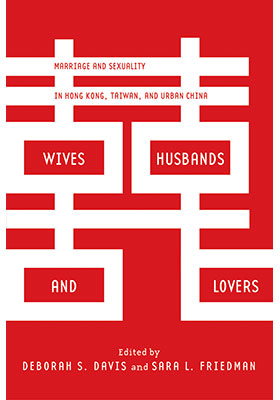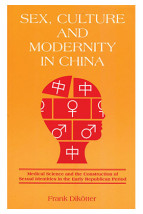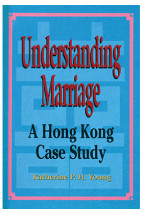Wives, Husbands, and Lovers
Marriage and Sexuality in Hong Kong, Taiwan, and Urban China
(妻子、丈夫和情人:香港、台灣與中國城市的婚姻與性別研究)
ISBN : 978-988-8208-41-8
July 2014
344 pages, 6″ x 9″, 11 b&w illus. and 12 tables
For sale in Asia, Australia, and New Zealand only
- HK$195.00
Ebooks
What is the state of intimate romantic relationships and marriage in urban China, Hong Kong, and Taiwan? Since the 1980s, many conventional expectations have been abandoned following the passage of no fault divorce laws, falling rates of childbearing within marriage, and increased tolerance for non-marital and non-heterosexual intimate relationships. Tracing how the marital “rules of the game” have changed across the region with the uneven retreat of state supervision and control, Wives, Husbands, and Lovers challenges the long-standing assumptions that marriage is the universally preferred status for all men and women in Chinese societies, that extramarital sexuality is incompatible with marriage, or that marriage necessarily unites a man and a woman. Read in dialogue, the chapters compellingly illustrate a new range of potential futures for marriage, sexuality, and family.
“Wives, Husbands, and Lovers explores how the dramatic changes in sexuality and marriage since the 1980s are currently challenging the fundamentals of family life in Hong Kong, Taiwan, and China. The authors present vivid descriptions of how increases in premarital sex, premarital cohabitation, divorce, same sex marriage, cross-border sexual and marital relations, and even births outside of marriage have shaken basic assumptions about marriage in all three locales. Even long-time students of East Asia will find much in this book that is surprising and new.” —Martin K. Whyte, Harvard University
“This is a well put together collection, and it is reassuring that sociologists are finally examining China’s sexual revolution with academic rigour.” —South China Morning Post, 24 August 2014.






